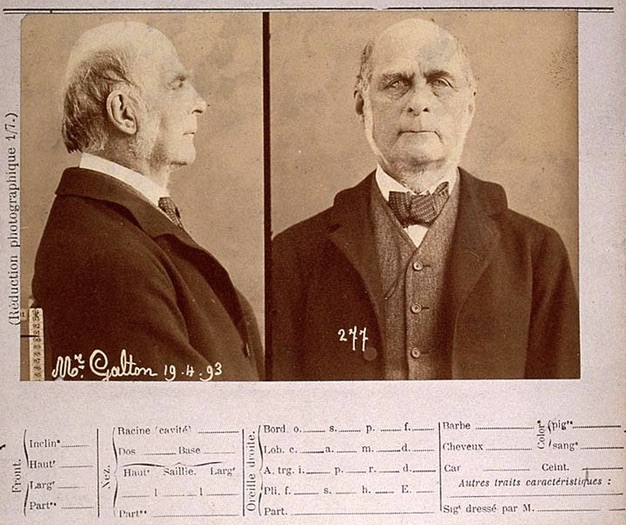
I’m not a psychoanalyst, but in the case of Francis Galton I’ll have a look. Grandson of Erasmus Darwin (erstwhile Lunar Society member, poet, naturalist, and inventor of the PA system), and hence cousin of Charles who was 13 years his senior, he devoted most of his life to promoting the idea that genius was hereditary.
His other grandfather was Samuel ‘John; Galton, from Duddeston and also a Lunar Society member, who was a prominent Quaker and arms manufacturer who seems to have excelled in many things. Except ‘getting interesting nicknames’ and the pacifist bit of Quakerism.
Francis’s dad, known as Samuel Tertius Galton, wrote papers on economics and his older brother Darwin Galton became High Sheriff of Warwickshire. Can you feel the familial pressure to succeed yet?
He was supposedly something of a child prodigy, reading local hero Shakespeare’s work at the age of six, attending King Edward’s School, and studying medicine at Birmingham General Hospital. Then he took a maths degree at Trinity College Cambridge: where the cracks began to show. A nervous breakdown and the death of his father led him to chuck it all up, rebel and become an explorer. With the Royal Geographical Society.
He turned out to be rather good at it, with pioneering cartographic studies of what would become Namibia, and the best-selling book The Art of Travel which offered “practical advice for the Victorian on the move”. His map-making skills also contributed to him developing the first weather maps. He was a credit to his family.
But they fuck you up, your grandfathers and their Lunar Society mates, they might not mean to, but they do. And so do your cousins.
Galton became rather obsessed with the work of Charles Darwin, and The Origin of Species became the jumping-off point for what we would consider now a rather darker area of study. Taking the chapter on the breeding of domestic animals to a slightly illogical conclusion, he developed and gave the name to an area of science that we might term ‘unnatural selection’: eugenics.
Developing all sorts of analytic and statistical processes on the way, he looked for evidence that human ability was heredity. In his book Hereditary Genius he detailed how the number of ’eminent’ relatives dropped off as you moved from first degree to second to third. He took this to be evidence of inheritance of abilities; his theory being: it’s not what you know, or even who you know, but who your dad knew. Biblically.
Rather rejecting the idea that hanging out with lots of other smart people in a safe environment, with money and a shitload of guns to back you up if needed, might just help a tiny bit in nurturing ’eminence’, Francis went all out down the genetic route. He suggested encouraging selective breeding in humans to improve the stock, a policy beloved of all sorts of right-wing nutjobs ever since. He also believed that a system of ‘marks’ should be developed to identify ‘families of merit’. There is no record of whether these would be best as a sort of six pointed yellow star.
Galton, of course, would claim that the ideas were good for the whole human race. And, in a passage in his book that could be headed “I’m not racist, but…”, he suggested that “the pride of race” should be encouraged but “the better sort of emigrants and refugees from other lands [should be] invited and welcomed, and their descendants naturalised.” And we might believe him too, had he not written a letter to The Times espousing the idea of giving Africa to the Chinese instead of the ‘inferior’ people who lived there already. If he was alive today he’d by a regular caller to Any Answers.
And if you want any more evidence that he was a — very smart and well-connected — wrong-un, Galton also invented the questionnaire and therefore market research.
Francis Galton then, a little from column A, a little from column B, and a little from the column marked ‘oh my God, he didn’t just say that did he?’.
